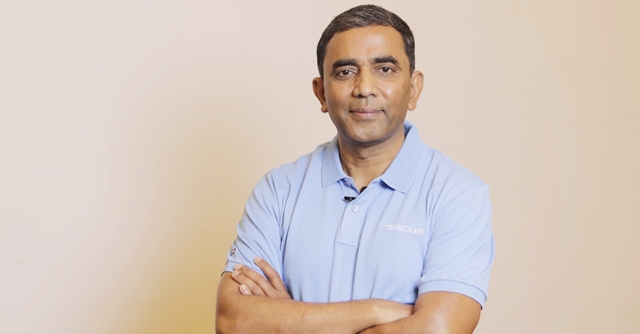
AI custom chip demand drives Tessolve’s double-digit growth


Despite the huge demands, the semiconductor industry suffered a 10% decline in 2023, mainly because of inventory correction. However, at this time, a Bengaluru-headquartered chip design and testing company Tessolve defied the industry downturn grew in double digits, co-founder and chief executive officer Srini Chinamilli said.
“In the last five years, we have grown at a 25% CAGR. We are projecting similar double-digit growth for the next five years,” Chinamilli said. He added that the company recently crossed the milestone of ₹1,000 crore in revenue ($120 million). It also coincides with the 20th anniversary of the company.
Founded in 2004, the company started as a semiconductor testing services provider. “I had worked in Silicon Valley for 15 years and wanted to do something of my own. At that time, we thought there was an opportunity in India since a lot of Indian design companies were sending their products to the US or Europe for productisation. We started with setting up a state-of-the-art lab in India,” said Chinamilli.

“We soon realised that we were too early and we did not have customers here; we had to turn to our Silicon Valley friends who gave us some projects. We faced a couple of challenges – there was no service infrastructure and we had to start from scratch, and secondly, there was a lack of relevant talent,” he added.
In the years that followed, the company has set up a training infrastructure and trained up to 5,000 engineers. Chinamilli claims that 80% of the world’s 20 largest semiconductor firms, such as Qualcomm, Intel, and Texas Instruments, are Tessolve’s clients today.
Further, artificial intelligence has offered multi-fold advantages to Tessolve, said Chinamilli adding that it is ultimately also driving its growth, especially last year. “AI has led to an increased demand for custom silicon, which in turn gives us new opportunities and markets to provide our solutions. Last year, our growth came from AI custom silicons. Secondly, AI has also enhanced the efficiency of our own tools,” he said.

Tessolve in India
Tessolve has over 3,000 employees, of which 2,500 are in India, working on the design and embedded parts of the services. Apart from Bengaluru, the company has offices in Chennai, Coimbatore, Hyderabad, Visakhapatnam, Bhubneshwar, and Hubli. “Our strategy is to have an office in at least one Tier-2 city of every state. As the talent comes from around the regions, attrition rates are also found to be lower.” Outside India, Tessolve has a presence in Singapore, Malaysia, the US, and Germany.
In 2023, the Indian government launched the Semiconductor Mission with a budget of ₹76,000 crore. Earlier this year, the Union Cabinet approved the establishment of three new semiconductor plants with a total investment of ₹1.26 lakh crore (over $15 billion). Two of these plants will be located in Gujarat and one in Assam. As the global semiconductor industry, valued at $600 billion, shifts towards a China+ policy, India finds itself in a favourable position.

“India has announced ATMPs (Assembly, Testing, Marking, and Packaging). We are excited about that, as we enable manufacturing. A lot of these people are in talks with us. We have been investing in this field for the last 20 years, so we are well-positioned to help them to transition to production class without having to start from scratch,” Chinamilli.
In 2021, the company raised $40 million from Singapore-based Novo Tellus Capital Partners. Chinamilli stated that the fund was used for expansion and acquisition. The company is currently in active discussions to acquire a firm in the chip design sector. “We are receiving significant interest from potential investors. While we may consider an interesting opportunity if it arises, we are currently self-sufficient.”
